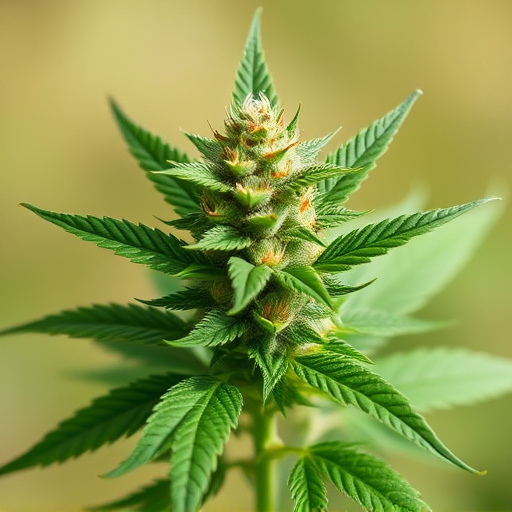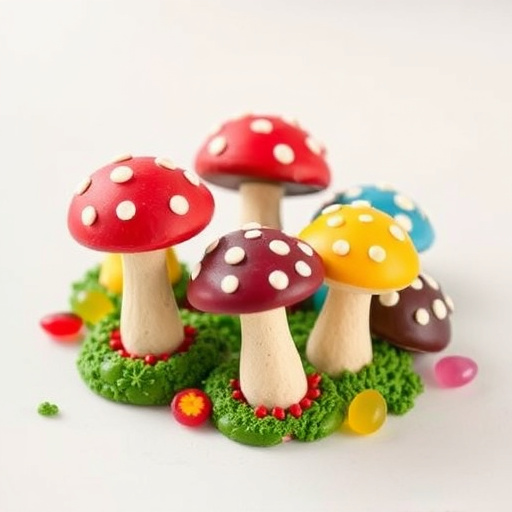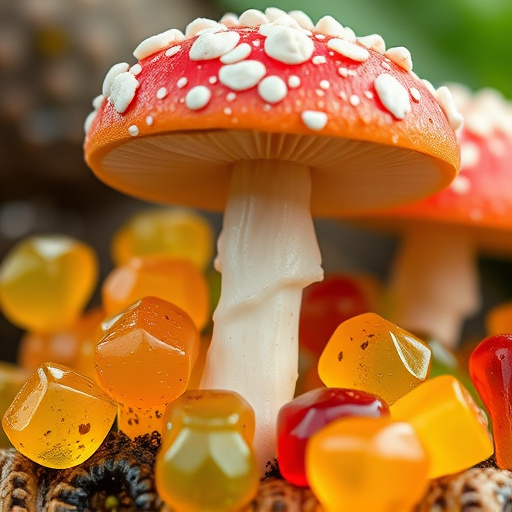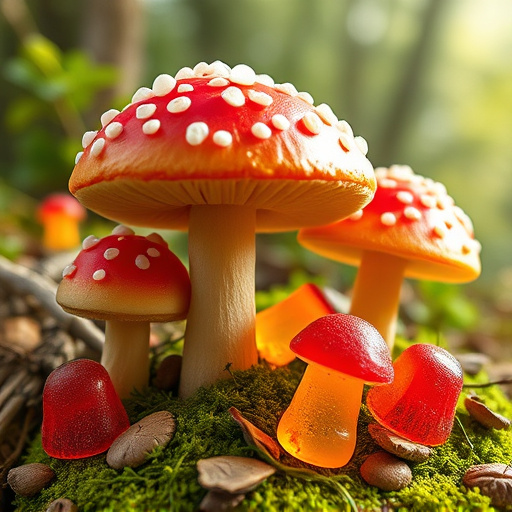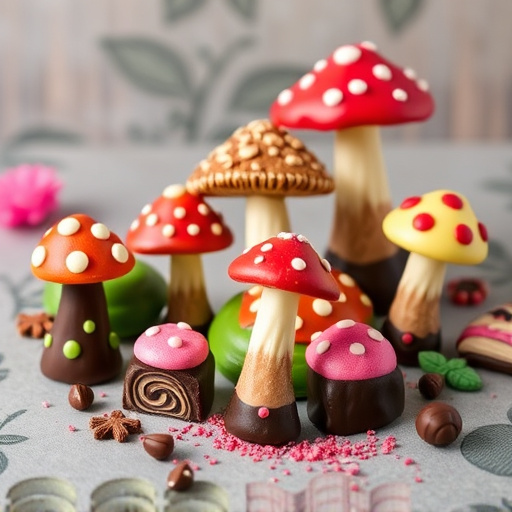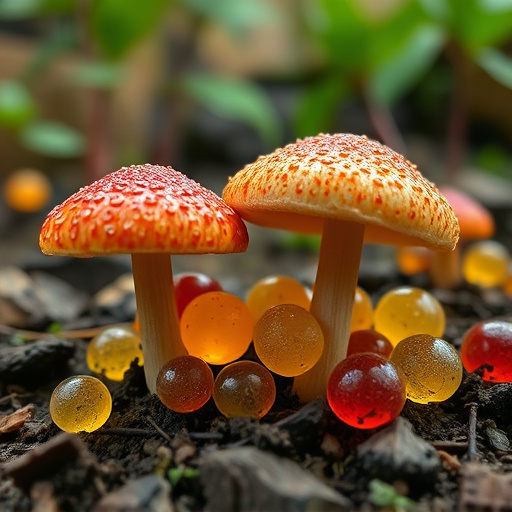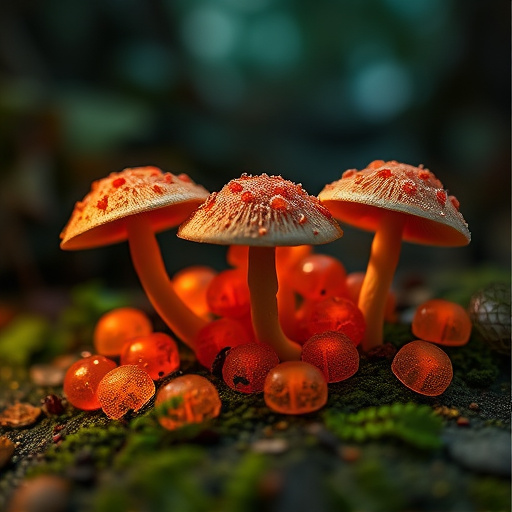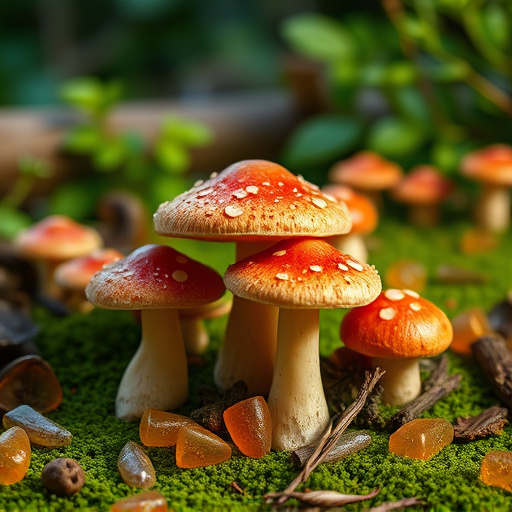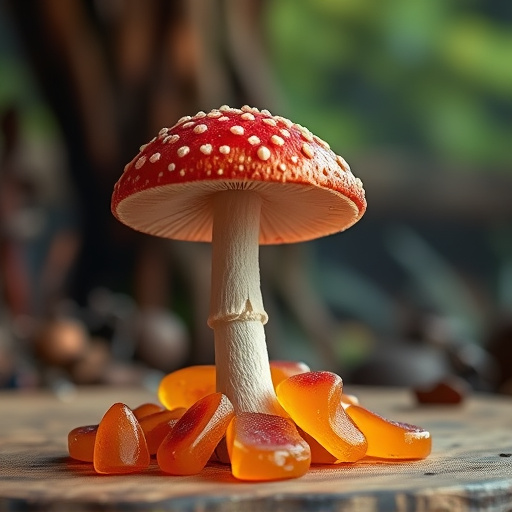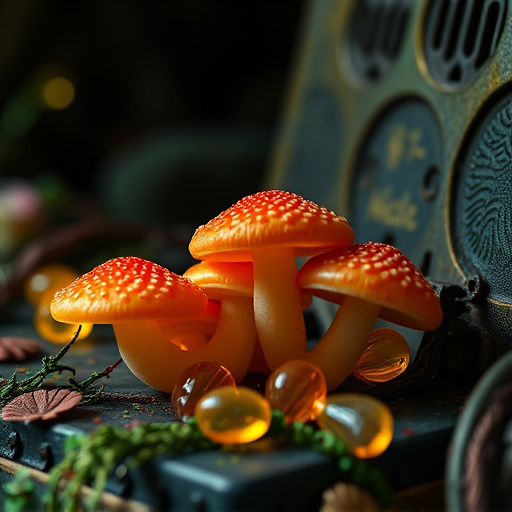Magic mushrooms, rich in psilocybin and psilocin, offer therapeutic benefits for emotional healing. These compounds interact with brain serotonin receptors, inducing altered states and heightened sensory perception. Research suggests their ability to evoke euphoria, enhance creativity, and facilitate emotional processing makes them effective treatments for depression, anxiety, and PTSD. Magic mushroom gummies, a modern delivery method, provide an accessible way to harness these natural compounds' potential in therapeutic settings, potentially revolutionizing mental health care.
“Unleashing the Potential of Magic Mushroom Gummies for Emotional Healing and Enhanced Focus. This comprehensive guide explores the scientific underpinnings of psilocybin mushrooms, delving into their chemical composition and interactions with brain serotonin receptors. We uncover promising research highlighting their therapeutic potential for anxiety, depression, and PTSD. Furthermore, this article navigates practical aspects, including dose calculation, side effects, legal considerations, and safe integration into daily routines, empowering individuals to harness the power of magic mushroom gummies responsibly.”
- The Science Behind Magic Mushrooms and Their Effects on the Brain
- – Exploring the chemical composition of psilocybin mushrooms
- – How psilocybin interacts with serotonin receptors in the brain
The Science Behind Magic Mushrooms and Their Effects on the Brain
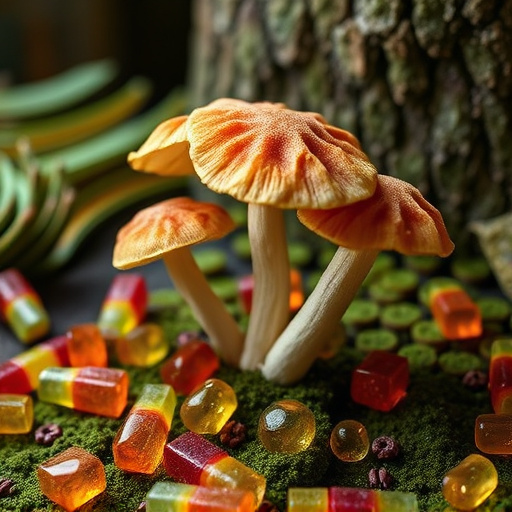
Magic mushrooms, scientifically known as psilocybin mushrooms, have long been shrouded in mystery and myth. However, modern science is uncovering their remarkable potential for emotional healing and cognitive enhancement. The active compounds in magic mushrooms, notably psilocybin and psilocin, interact with the brain’s serotonin receptors, leading to altered states of consciousness and heightened sensory perception.
Research suggests that these compounds can trigger a cascade of neurochemical changes, promoting feelings of euphoria, enhanced creativity, and deeper emotional processing. This effect is particularly notable in therapeutic settings, where magic mushroom gummies have been used to treat conditions like depression, anxiety, and post-traumatic stress disorder (PTSD). The science behind magic mushrooms for focus and emotional healing is evolving, offering promising insights into the potential of these natural compounds to revolutionize mental health treatments.
– Exploring the chemical composition of psilocybin mushrooms

Psilocybin mushrooms, often referred to as “magic mushrooms,” contain a unique chemical composition that has sparked both fascination and scientific inquiry for decades. These fungi produce several psychoactive compounds, with psilocybin and psilocin being the most well-known. Psilocybin is a precursor to psilocin, which is responsible for the majority of the hallucinogenic effects associated with these mushrooms. When consumed, psilocybin converts into psilocin in the body, interacting with serotonin receptors in the brain, leading to altered perceptions and heightened emotional awareness.
The potential benefits of psilocybin mushrooms extend beyond their recreational use, as research suggests they can be powerful tools for emotional healing. Studies have explored their therapeutic applications in treating depression, anxiety, and trauma, showing promising results in helping individuals process and overcome difficult emotions. Magic mushroom gummies, made from these fungi, offer a modern twist on traditional ingestion methods, potentially making them more accessible and appealing to those seeking alternative approaches for mental well-being, especially in the realm of emotional healing.
– How psilocybin interacts with serotonin receptors in the brain
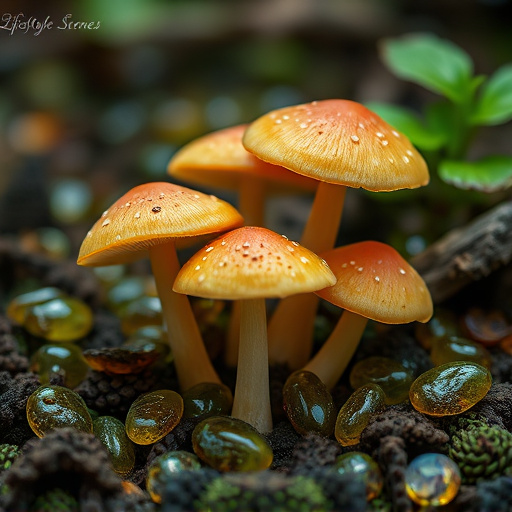
Psilocybin, the active compound found in magic mushrooms, has been a subject of interest in the field of neuroscience due to its unique interaction with serotonin receptors in the brain. Serotonin is a neurotransmitter that plays a significant role in mood regulation, cognitive functions, and emotional healing. When psilocybin enters the body, it is quickly converted into psilocin, which binds to specific serotonin receptors, primarily 5-HT2A receptors. This binding leads to a cascade of neurochemical events that can alter perception, enhance creativity, and potentially stimulate emotional processing.
Research suggests that this interaction may underlie the therapeutic effects of magic mushroom gummies for emotional healing. By modulating serotonin levels and activating certain neural pathways, psilocybin can promote feelings of well-being, reduce anxiety, and facilitate a deeper connection with one’s emotions. This mechanism makes magic mushroom gummies an intriguing option for exploring alternative approaches to mental health and emotional resilience.
While the potential benefits of magic mushroom gummies for focus and emotional healing are intriguing, it’s crucial to remember that psilocybin remains a Schedule I controlled substance in many countries. Further research is needed to fully understand its effects on the brain over time and establish safe, regulated use. Until then, exploring alternative natural solutions for focus and mental well-being may be a more viable option.


